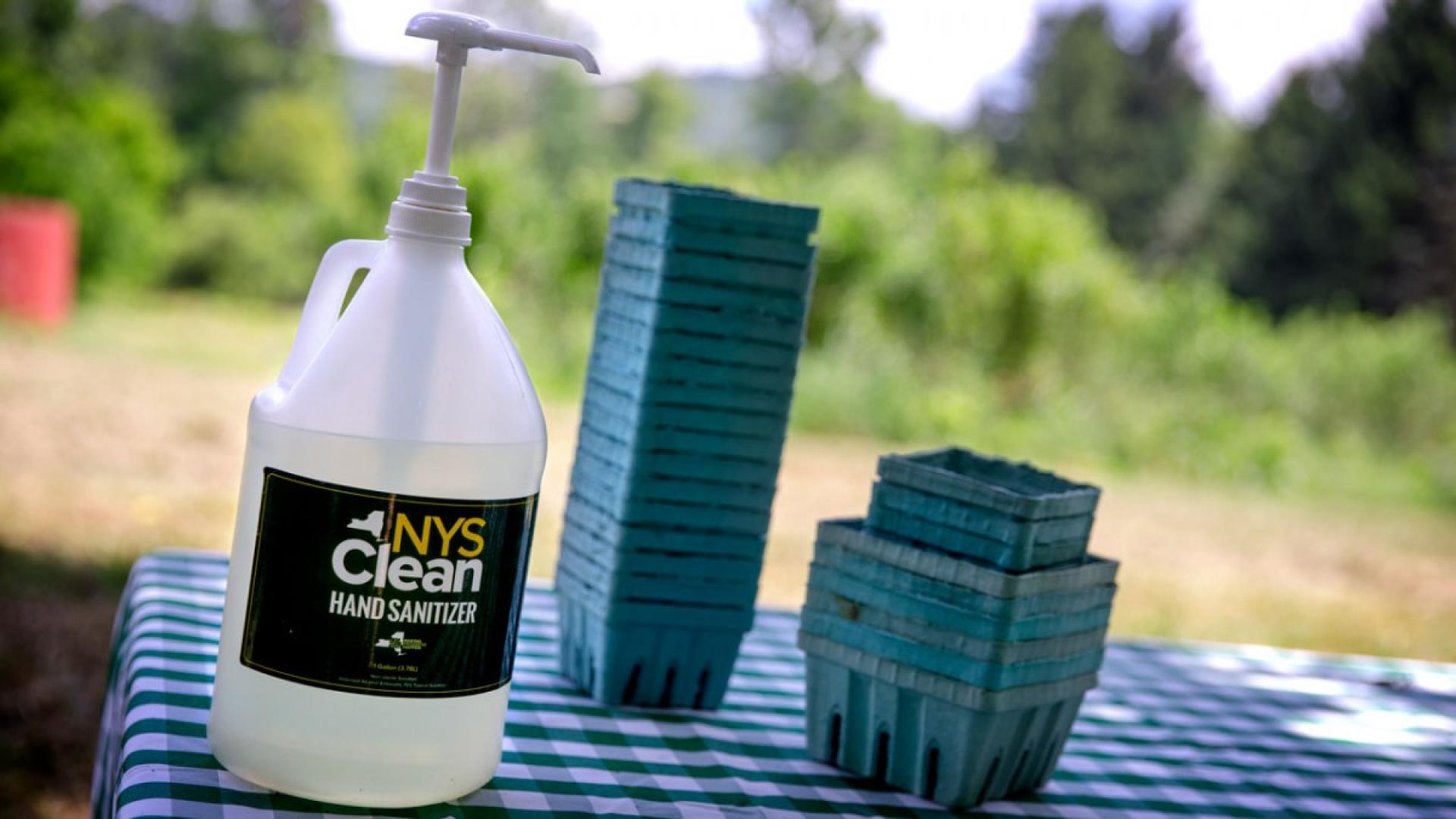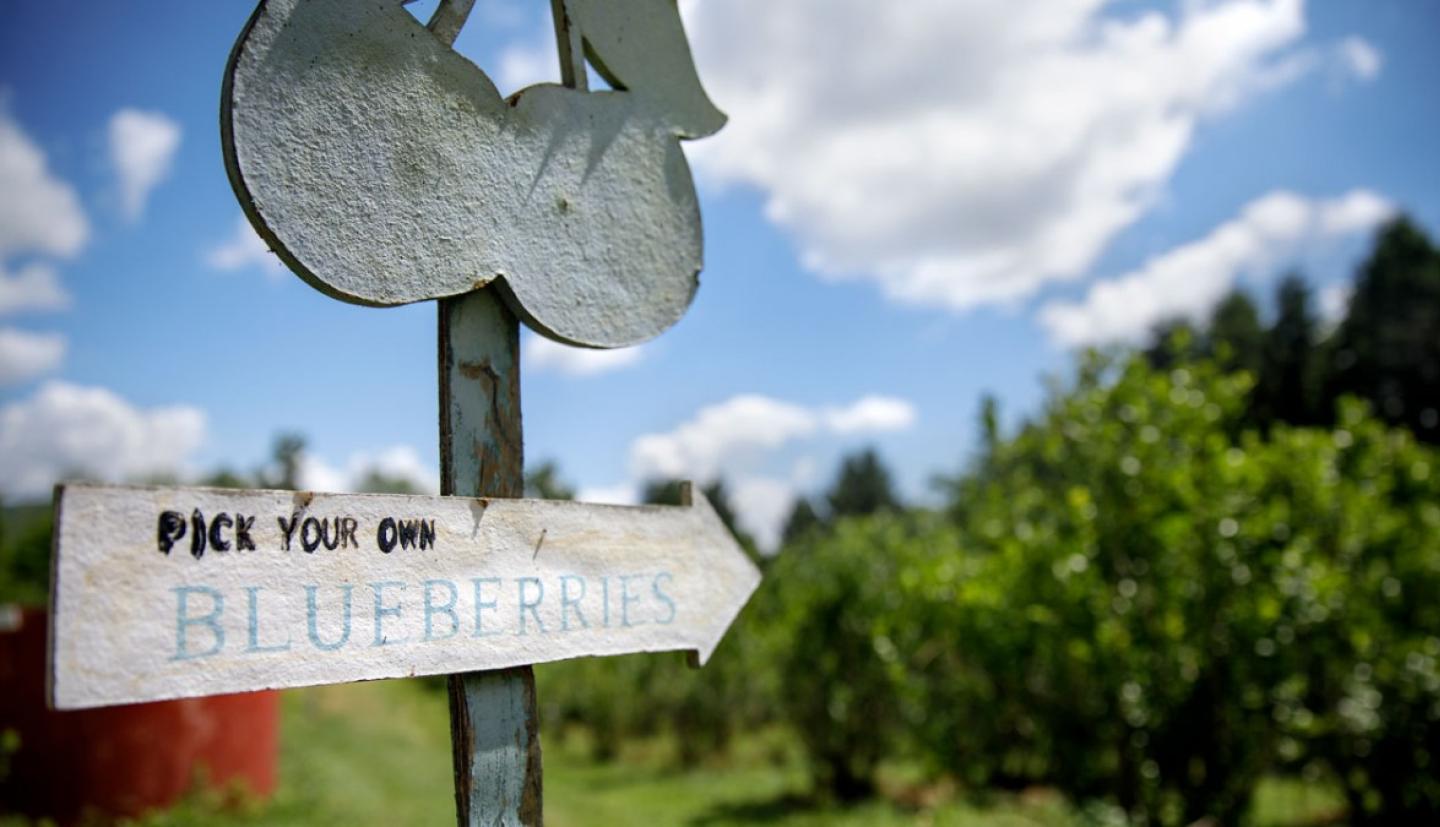“As I drive around eastern New York, I’m hearing from farmers that 100% of customers are wearing masks as they enter and exit the pick-your-own farms,” she said.
“People have adopted these guides and there is very little pushback. Rules rule, and the customers are OK with it.”
CCE has worked exhaustively to keep farmers, farm employees and the public safe in each New York county.
One key factor for safety was an enormous push by New York’s Department of Agriculture and Markets – under New York Gov. Andrew Cuomo’s directive – to provide hand sanitizer to farms. Two statewide sanitizer distribution campaigns in the late spring were organized by Paul O’Connor, associate director of field operations for CCE.
Using six regional pick-up points as hubs for all 56 county extension offices, CCE has distributed 28,069 gallons of the state’s golden hand sanitizer, packaged by New York to combat price-gouging, plus 30,386 two-ounce bottles and 106,640 face coverings, according to CCE statistics. For agricultural businesses of all kinds, that distribution affected 46,755 agricultural employees throughout the state.
In Washington County, business at the Hand Melon Farm is strong. Compared to normal years, “we’re doing double the volume of our farm stand and the U-pick season right now,” said Terry Oosterom ’82, who manages the farm along with owner John Hand.
Hand Melon Farm has pick-your-own blueberries now, and will have tomatoes, sweet corn and their famous cantaloupes later this season.
“I hate to credit COVID-19, but it is the only thing that explains the huge interest in local produce now,” Oosterom said. “People want to buy local and they want to know where their food comes from.”
Oosterom said the farm stuck closely to the Cornell guidelines as they educated customers online and through social media, and provided hand-washing and sanitizer stations. They learned that hand sanitizer misting bottles covered hands best.
Getting Cornell guidance and obtaining the state’s sanitizer have been keys to success for some U-pick farms. The proof is in the cash register.
“We are booming,” Oosterom said. “We are almost uncomfortably busy.”
This article also appeared in the Cornell Chronicle.







